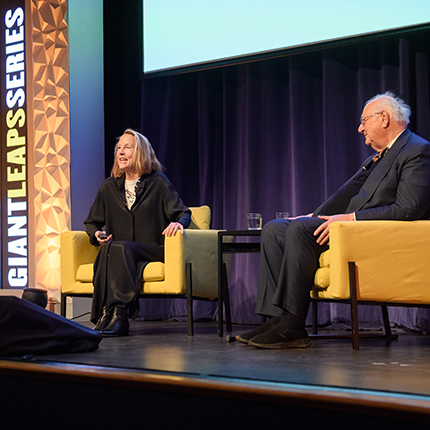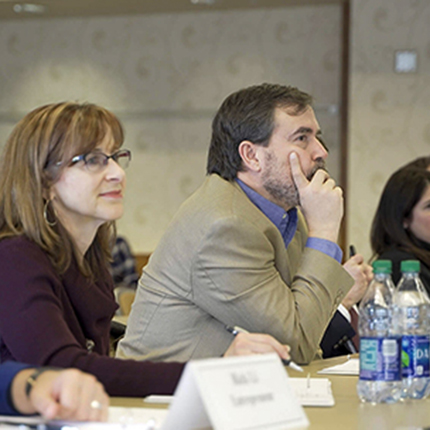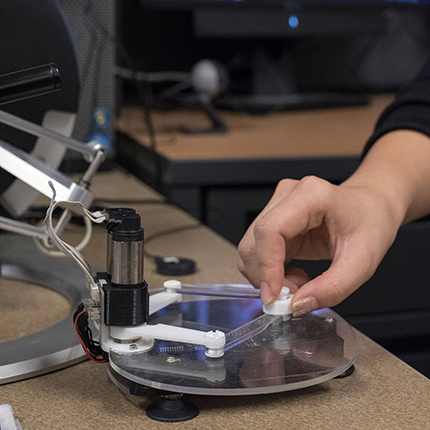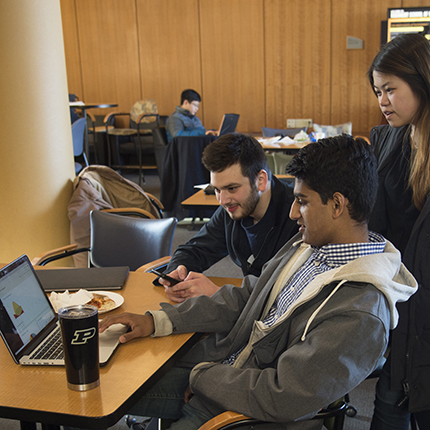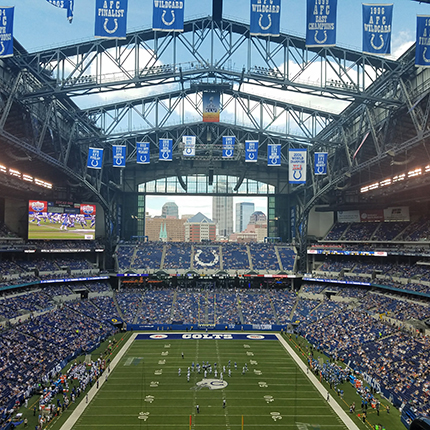Signs of Success
Student startup makes video content more accessible
For three Purdue University students, helping the deaf and hard-of-hearing succeed in the working world isn't just an altruistic vision. It also makes good business sense.
Heya Kaakeh, a senior in the School of Mechanical Engineering, and her sister, Seba Kaakeh, a biochemistry junior in the College of Agriculture, teamed with Krannert senior Yasmeen Hafeez to launch Global Sign, which works to encourage governments, schools and companies to make their video content sign language accessible to the deaf.
The startup won the $15,000 first prize in the social entrepreneurship category at this year’s Burton D. Morgan Business Model Competition, as well as a $5,000 prize for social innovation. The team’s motivation came from Hafeez, who will graduate in May with a BS in Supply Chain, Information and Analytics.
“I have a younger brother who is severely hard-of-hearing,” she says. “Since his diagnosis, my family and I have become really involved in the deaf community.”
Although closed captioning is common on television and some online videos, deaf people often struggle to fully understand because they think and communicate in American Sign Language (ASL). “For many deaf people, English is not their first language,” Hafeez says. “Concepts are communicated very differently in ASL, so just having captions isn’t enough.”
The team first identified the problem in 2016 while working on a project with Khan Academy, an online-learning organization that provided them administrative rights to post ASL videos. Their initial goal was to translate educational videos on the topic of Javascript coding by overlaying a sign language interpreter on the screen.
After launching a crowdfunding project called “1000 Videos for the Deaf” to promote the idea, the trio of students quickly discovered how difficult it was to locate interpreters, write the scripts, film the videos, proof the results, integrate the finished product into Khan Academy’s system, and then repeat the process over and over again.
Despite advances in technology, it became clear that many organizations have similar problems adapting their communications to deaf and hard-of-hearing audiences. Global Sign serves as the solution, linking companies who want to adapt their content using sign language with a worldwide pool of interpreters and producers who actually deliver it.
The teammates say their respective backgrounds in different disciplines played a vital role in establishing the company.
“Purdue Engineering emphasizes human-centered design, where the customer comes first,” says Heya Kaakeh. “We focused on getting connected with deaf and hard-of hearing individuals so that we could make the best decisions.”
While the National Technical Institute for the Deaf provided feedback on Global Sign’s video format and provided a pipeline of students who were willing to test the end product, Krannert master’s student Ishan Mehta and School of Management staff members Steve Dunlop and Greg Beaver helped the team build a viable business model.
Seeba Kaakeh says the structure of the Morgan Competition gave the team ample time to craft and refine its pitch. It began in October 2018 with 49 teams involving 109 students and included five months of business model workshops, seminars and training. Twenty-nine teams pitched in the preliminary round in January and eight teams advanced to the February finals.
“The great thing is that we were giving feedback all the way through to the finals,” she says. “It was a continuous learning process.”
Hafeez, who’ll begin her professional career as an IT business analyst for US Foods in Chicago, says presenting the idea to judges was challenging even for an experienced management student.
“It was a little intimidating talking to businesspeople, especially because this project comes from our hearts,” she says. “I could tell by their reactions that they weren’t aware of this issue, but they clearly saw a need for an organization like ours.”
In fact, the judges of another annual competition hosted by the Burton D. Morgan Center — the Schurz Communications Innovation Challenge — also affirmed the value of their idea. Fourteen teams of both undergraduate and graduate students took part in the challenge last month, where a total of $10,500 in cash was awarded.
All teams were judged on a number of factors, including the quality of the presentation, their ability to sell products, how far along the project is, whether it has a working prototype, the methodology used and the existence of documented customer validation. Once again, Global Sign came away with the top prize.
For Heya Kaakeh, the back-to-back victories reinforced the importance of having a cross-disciplinary background. “You can come up with all sorts of ideas, but they’ll just stay in the lab unless you learn how to create and present a business model,” she says.

